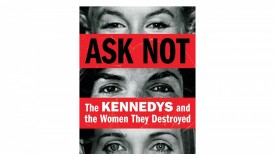'NORTH KOREA: The People's Paradise' by Tariq Zaidi Book Review: A Visual Odyssey Through North Korea’s Hidden Realities

Discover the hidden realities of North Korea in "NORTH KOREA: The People's Paradise" by Tariq Zaidi.(Photo : Amazon/Tariq Zaidi)
In his book "NORTH KOREA: The People's Paradise," photographer Tariq Zaidi offers a rare glimpse into North Korea's secluded society. With limited access and official chaperones keeping a close eye on him, Zaidi captures everyday events that provide a complex view of a nation frequently veiled in mystery.
In 2014, Zaidi transitioned from his corporate career to freelance photography. Since then, he has focused on capturing individuals' dignity, strength, and essence in various settings. His photography has gained global recognition, appearing in over a thousand publications spanning 90 countries.
Exploring Life in North Korea
Readers are taken to Pyongyang's streets through Zaidi's lens, where a female traffic warden stands resolutely, reflecting the state's emphasis on discipline and order. According to a New York Times article, amid the meticulously orchestrated scene, Zaidi's photos show subdued acts of rebellion, such as a soldier stealthily lighting a cigarette or a group performance interrupted by a stiff knee. These instances of flaw humanize a culture that is too frequently portrayed as monolithic.
Zaidi's photographs capture the ever-present portraits of Kim Il-sung and Kim Jong-il, which symbolize the state's authority. However, they also showcase the unique characteristics and perseverance of the North Korean people. From a young girl engrossed in piano practice to men sharing a picnic by the river, each person emerges as a small nation unto themselves, navigating the complexities of life under authoritarian rule.
An Amazon review noted that Zaidi's collection of photos from North Korea is intriguing, showcasing glimpses of the closed-off country's landscape and economy. The book focuses on daily life activities, which readers will truly appreciate. However, some flaws can make the reading experience rough. The thick paper makes it challenging to open flat, and the placement of captions at the end requires constant flipping between pages.
Understanding North Korea's Intriguing Realities
A review in Frames Magazine described the book as a remarkable piece that takes readers one step closer to comprehension. Given the country's complex role in global politics, comprehending our adversaries is increasingly crucial. Zaidi's book delves into nuanced aspects of the country through insightful subsections like 'History and Politics.'
While primarily a collection of photographs, the images, meticulously approved by North Korean handlers, offer profound insights into the country's dynamics. Each picture narrates a tale, ranging from displays of military prowess to moments of ordinary life.
The deliberate arrangement of captions at the book's end encourages readers to connect emotionally with the images before delving into their deeper meanings. As readers traverse the pages, they confront the irony of the title "People's Paradise," sparking introspection rather than political discourse.
Although the book may not unveil novel facts about North Korea, it effectively communicates its essence. The book encourages readers to reconsider their views and understandings from a Western viewpoint, turning it into an engaging exploration of individual identity and societal norms.
Overall, "NORTH KOREA: The People's Paradise" transcends mere visual storytelling. It is a tribute to the enduring human spirit and resilience, even within highly constrained settings. Zaidi's pictures serve as a moving reminder that underneath the surface of consistency is a rich tapestry of people, each with their own goals, challenges, and hopes.
RELATED ARTICLE: New Book 'Hidden Japan' Explores Lesser-Known Destinations in Japan
© 2023 Books & Review All rights reserved.
Popular Now
1
Books to Read After 'Fourth Wing': Top Picks for Fantasy and Romantasy Fans

2
‘The Secret Public’ by Jon Savage Book Review: An Insightful Look Into the LGBTQ Influence

3
Stephanie Regalado's 'If They Only Knew' Column Is Now A Book, Unleashing 60 Anonymous True Stories to Empower Women

4
'No Wire Hangers' Scene That Almost Did Not Happen: New Book Reveals Faye Dunaway's Struggles

5
Rare First Edition of Aphra Behn's Novel 'Oroonoko' Discovered in Kent: A Historic Literary Find

Latest Stories
Book Reviews
‘The Secret Public’ by Jon Savage Book Review: An Insightful Look Into the LGBTQ Influence

Book News
Stephanie Regalado's 'If They Only Knew' Column Is Now A Book, Unleashing 60 Anonymous True Stories to Empower Women

Book News
'No Wire Hangers' Scene That Almost Did Not Happen: New Book Reveals Faye Dunaway's Struggles

Book Reviews
‘The Perfect Couple’ by Elin Hilderbrand Book Review: A Captivating Summer Mystery

Book News
New Book ‘The Franchise’ Reveals Penguins President Kyle Dubas’ ‘Biggest Mistake’ as Maple Leafs GM











